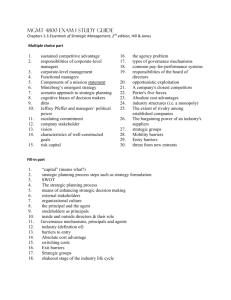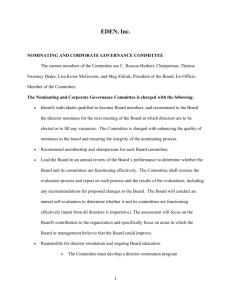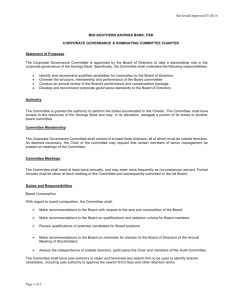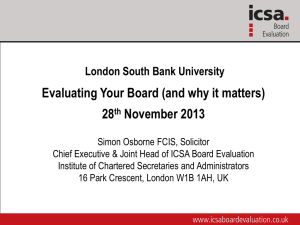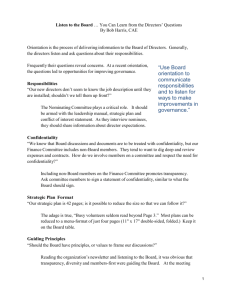Nihal Fonseka, DFCC Bank
advertisement
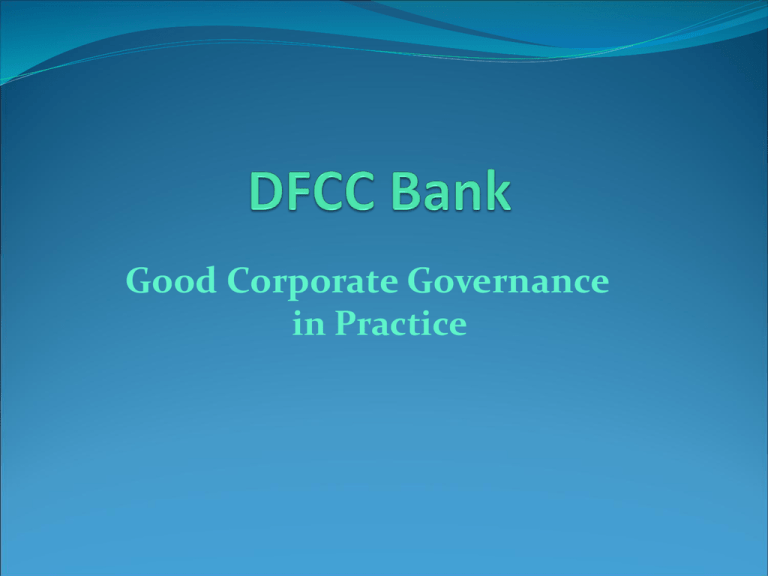
Good Corporate Governance in Practice Outline What is Corporate Governance? Regulatory Requirements for Banks in Sri Lanka DFCC Practices - Key Elements Code of ethics Enterprise Governance Board Composition Board Responsibilities Investor relations Role of Company Secretary Disclosure What is Corporate Governance? Many definitions “The framework of rules and practices by which a board of directors ensures accountability, fairness, and transparency in a company’s relationship with its all stakeholders (financiers, customers, management, employees, government, and the community)”.[Source: Business Dictionary.com] Regulatory Requirements for Banks in Sri Lanka Mandatory and prescriptive direction issued by Central Bank of Sri Lanka. Key elements: Board composition Qualifications for directors Demarcation of the roles of Chairman and CEO Prescribed duties and qualifications for Board Identification of Related Parties and prescribed procedures for Related Party transactions Mandatory disclosures in the Annual Report Code of Ethics Based on OECD principles of good governance Corporate Values Whistle blowing policy Customer Charter Social Responsibility Closed period-dealing in Co shares, directors/employees Enterprise Governance Strategy formulation Review of performance Alignment of performance targets to KPI’s Risk Management Legal & Regulatory framework Delegation – extent & review Division of responsibility Transparency Board Composition Directors - Executive/Non executive Non executive Chairman Independence of Directors Separation of Chairman and Chief Executive Officer Board Committees Board Nomination policy Self Assessment Board Responsibility Act with good faith with due diligence and care Treat all stakeholders fairly Review of corporate strategy Role of chairman – leadership & stimulates discussion Attendance at Board meetings Policy on independent professional advice Oversight of related party transactions Avoidance of conflicts of interest Identification of matters reserved for Board Investor Relations Communication Policy Timely reporting of financial performance Dissemination of price sensitive information Timely notification of shareholder meetings/agenda Free transferability of shares Equal rights Maintenance of help desk Role of Company Secretary Statutory & regulatory functions Secretariat services to Board/shareholders Access to Directors Guidance on directors responsibilities Minutes of meetings Directors’ interest register Disclosures Financial and operating results Corporate objectives Major share ownership Remuneration of Board & Key management Related party transactions Risk framework Internal Control framework Auditors report – external & internal

